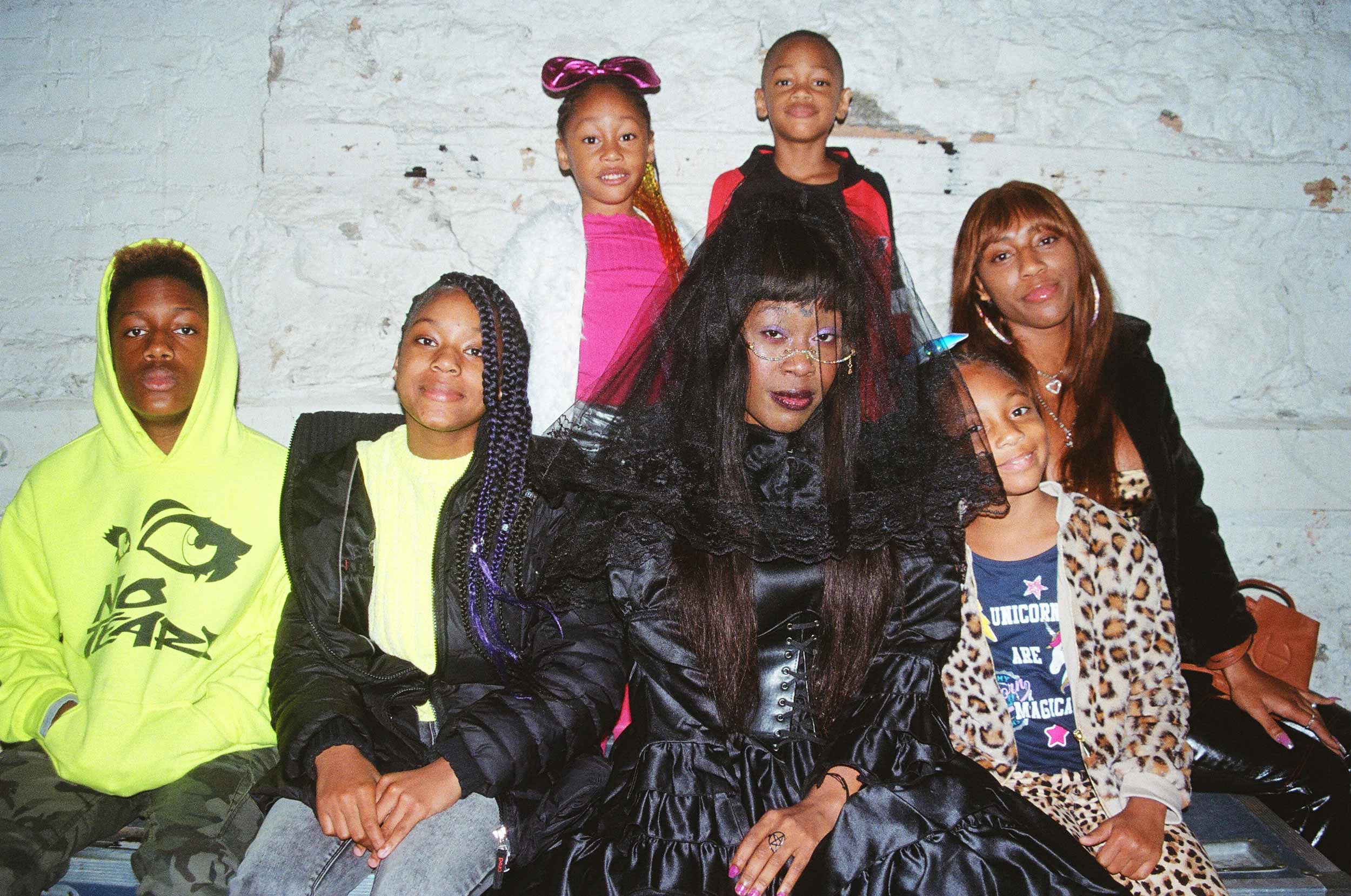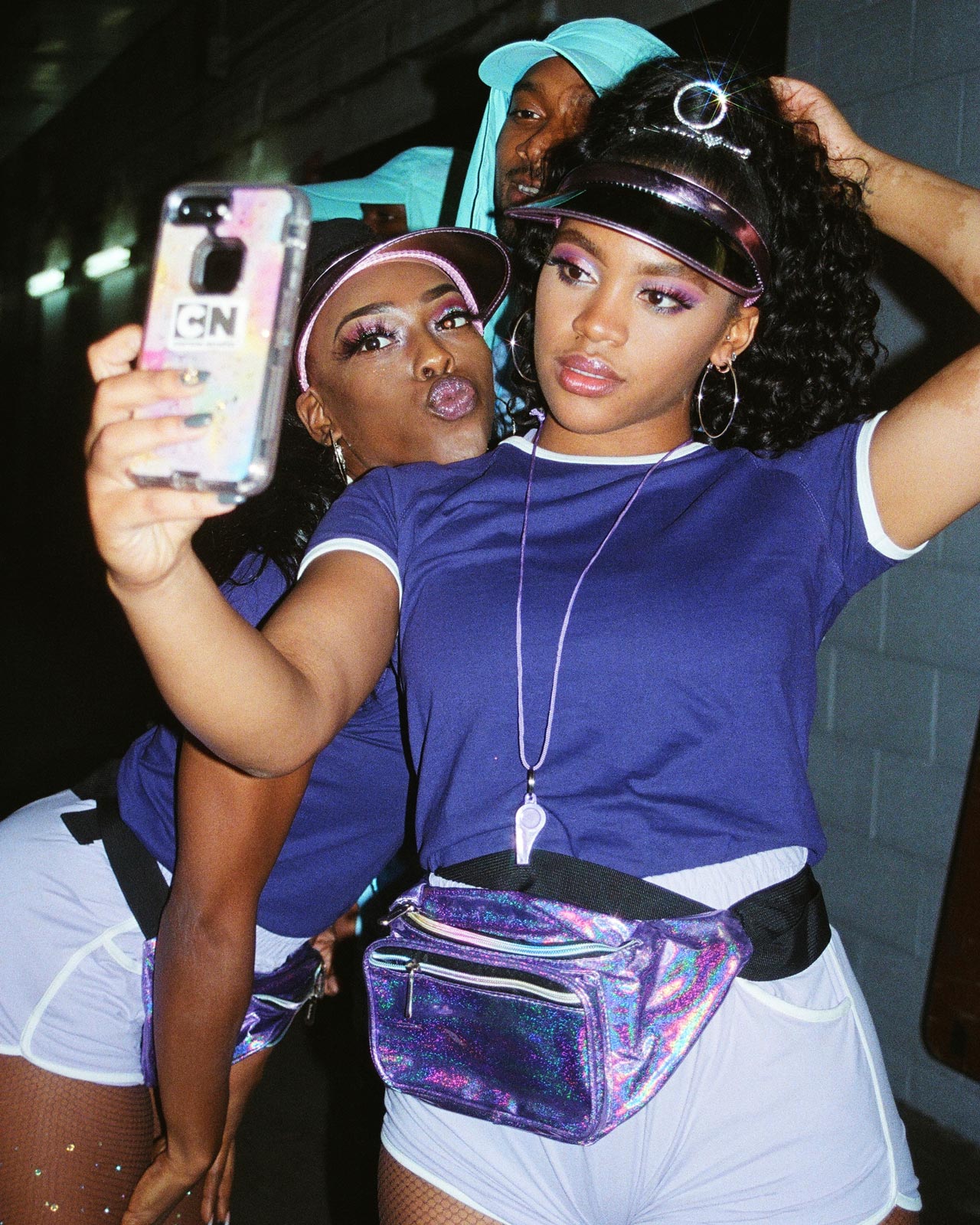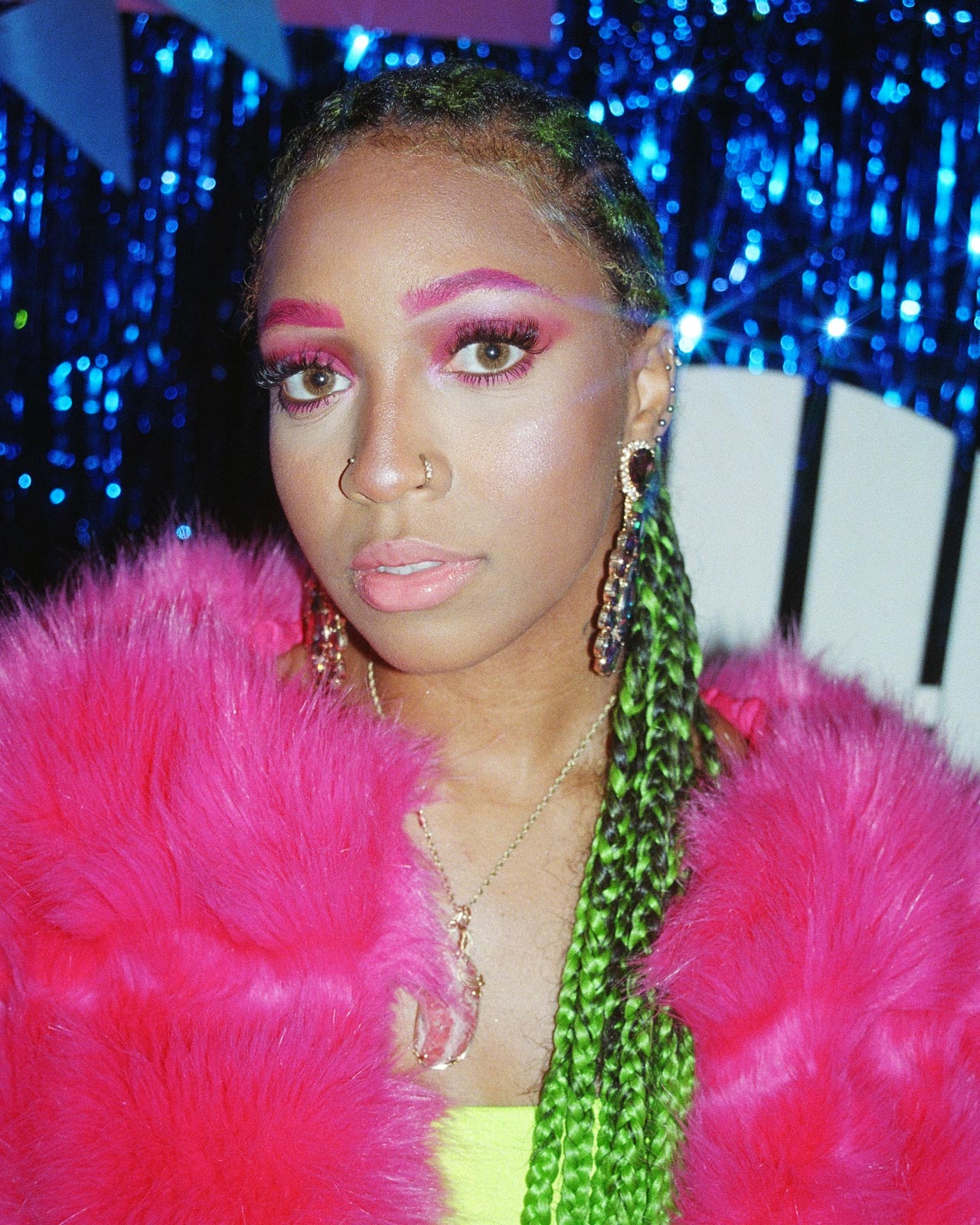Kari Faux, Uniiqu3, Mulatto, Baby Rose, and Bbymutha talk solidarity, unapologetic realness, and why Atlanta is the ‘hub of culture.’
Powerful and creative female artists have long served as the backbone of hip hop, but 2019 casts a welcome and needed spotlight for the women bubbling just beneath the surface of rap’s mainstream. Highlighting this overdue inclusion of female MCs was Yung Baby Tate’s Camp performance at Red Bull Music Festival Atlanta earlier in the month, which put Tate alongside five other incredible artists for one of the most unique, inclusive, and fun shows of the year. Tate invited artists Kari Faux, Uniiqu3, Mulatto, Baby Rose, and Bbymutha to join her onstage for an untraditional, summer camp-style set consisting of glammed-up looks, intricate choreography, and over the top stage design. The performance was a sampler of southern hip hop; each of these artists, also featured on Tate’s Girls EP, performed their collaborative tracks with Tate, and then played a few of their solo songs. The show encouraged community solidarity and aimed to showcase underrepresented artists—an increasingly rare occurrence in contemporary hip hop. So in that spirit, let’s meet the ladies who took over Atlanta.
Kari Faux
Little Rock-based rapper and producer Kari Faux gained critical acclaim following projects like Laugh Now, Die Later, and Cry 4 Help, and was lauded for her work with artists Childish Gambino and Isaiah Rashad.. Known for her colloquial delivery and clever lyrics, Kari brings with her a youthful and defiant zeal in everything she touches, intertwining her signature spoken-word style with a confident southern twang.
David—Seeing you with so many other amazing artists at Yung Baby Tate’s Camp show was fantastic. What did that show mean to you?
Kari—[The] show, to me, felt like a huge declaration. All these black women with different sounds and styles not only co-existed in one space but were supportive of each other and put on an amazing show.
David—You and all the other performers at Camp are so young. What excites you most about the younger generation of hip hop music?
Kari—I think the shamelessness of the younger generation is what excites me. I know that may sound crazy, but when artists are unapologetically themselves, it sometimes opens up the space for more conversations on certain topics that may have been taboo for years.
Uniiqu3
Multi-hyphenate DJ, producer, and Club Queen, Uniiqu3, originally from New Jersey, knows how to work a crowd. Her music is known for its captivating Jersey bounce, but also has references to her various interests, from Detroit house music to Atlanta strip clubs. “DJ’s have to listen, for the crowd,” she told me via phone a few days after Camp. Highly adaptable, when Uniiqu3 listens, she hears the complexities in her club anthems, making her one of the most exciting DJs currently on the scene.
David—What did Yung Baby Tate’s Camp show mean to you?
Uniiqu3—Well first, let me say Tate is a superstar. It was great to see her perform like that. It meant a lot to me to be on a lineup with all of those girls—some I’m already real close friends with, some I’ve been fans of for a while—and I think it’s really dope that Tate had the opportunity to have everybody that worked on her last album, Girls, be a part of her show. It just meant a lot to have all of those black girls on the same lineup that are all different from each other.
David—Do you think that kind of solidarity is rare in hip hop today?
Uniiqu3—Yeah, I definitely do. I feel like it’s becoming more popular, but, you know, I’m a female DJ, and my industry [is] shy of women and black people. I just feel like more people are being alright with it being an all-women show. It was a lot of guys there, too. I was like, ‘damn that’s dope.’ Especially with the theme being camp, I was happy to see a lot of our straight male friends out there supporting, cheering on the ladies.
David—All of the performers are so young—what do you think about today’s group of new hip hop artists?
Uniiqu3—They’re all coming with so much different energy. I feel like they’re definitely more raw. But they’re into telling their story, not just verbally, but, like, physically. With a show like that, Tate was able to take us all into her world. I definitely see the ladies in the new age in hip hop being more creatively driven than a lot of the guys have in the past. They’re coming with the choreography, they’re coming with the stage design, the look, everything [laughs].
Can I add something? Just as a shout-out, I wanted to say that, from one woman to another, putting on a show the way that Tate did is not easy. For her to have produced, written, and now she’s performing her own album—I commend that because I definitely would like to see more females be in the booth as well as on the boards. Hats off to that from one lady-producer to another. It’s important that they say that about her. I was asking people at the venue, like ‘hey, have you heard of her before?’ They were like, ‘No, but she’s fire.’
Baby Rose
When Baby Rose’s devastating and emotive voice first departs the petit 25-year-old’s body, it’s difficult to know how to react. The Atlanta-based R&B and soul artist sings with the passion of Nina Simone and the swagger of Erykah Badu. Her debut album, To Myself, is a haunting ode to traditional soul music, stamped with mature, velvety production. It’s Rose’s innate talent for story-telling that has catapulted her into global recognition, but it’s the reserved and tender sensibilities that hint to Rose’s lasting success in the genre. I caught up with her minutes before she performed at Camp to chat about what the show meant to her.
David—What does this Camp performance mean for your career?
Baby Rose—It’s just inspiration if anything. Tate has been somebody that I’ve been a fan of for years, and she’s one of my friends. She’s one of the people in this game who have really shown what it means to be autonomous and take control of your music when it comes to producing, singing, engineering, writing—everything. To be able to see her with her complete vision elevated. It’s been amazing.
David—What does this performance mean in the larger scheme of Atlanta hip hop? Where are we headed in Atlanta hip hop?
Baby Rose—I think that this is putting the light on creators who have had their head down, have grinded, have a different sound to offer than what is the norm, and are a lot deeper than just the surface-level artists that you think of when you think of Atlanta. I see it as a really good sign for the future. It’s only going to encourage young creatives.
David—What are you most excited for about the show?
Baby Rose—I’m excited to play around on the muthafuckin’ stage! All the props and shit. I’m excited to do a song that I haven’t ever performed before, ‘In Your Arms.’ I felt like it was only right because I produced that song a hundred percent on my own, and Tate is one of those people that put that seed in my head: ‘If I produce this, I’m going to release it. I’m going to stand by my work, no matter what.’ I’m gonna do the song for the first time, and I’m excited as fuck to pop out the tent!
Bbymutha
Bbymutha is from Chattanooga, Tennessee, but her raw and unbridled raps are more reminiscent of Gucci Mane in his early career. Bbymutha is a professional rapper—she puts her head down and creates her music—she doesn’t compromise, she’s unapologetic, and she’s one of the best underground MCs. Her 2017 breakout song, “Rules,” launched her into public appeal, but it hasn’t affected her drive, and her fans continue to flock to her because of her honesty and unwavering self-acceptance.
David—What does this Camp show mean to you?
Bbymutha—Just, freedom of expression. It’s not something that’s hard to do as an artist, of course we have freedom of expression, but I feel like this right here gives us the opportunity to really, really go the extra mile, wearing shit we probably wouldn’t wear to a normal show.
David—In an era where there seems to be a lot of competition among female MCs. What does this show mean for female rappers and artists?
Bbymutha—I don’t know. I hate those kinds of questions because this is work. It’s our passion as well, but it’s work for us. Like let’s all come together and make some money. It don’t mean nothing else. Some of us do have relationships outside of this, but some of us is just here to work, get money, and go home.
David—What are you most excited for about this show?
Bbymutha–I wanna see the stage. I want to see the stage design!
Mulatto
Mulatto has a group text with thousands of her fans where she’ll personally send new music, encouragement, and chat with fans about their lives. It’s this fun and approachable mindset that’s brought Mulatto the forefront of Atlanta rap. At only 20 years old, Mulatto was the youngest artist to perform at Yung Baby Tate’s Camp show, but her orange hair, neon green suit, and ferocious raps commanded the show. She’s released several projects since her career began after winning Lifetime TV’s reality rap series, The Rap Game, and fans are eagerly awaiting her upcoming album, Big Latto.
David—What does this Camp show mean for your career?
Mulatto—You know, it’s female unity, supporting my sister, and she’s bringing all the hottest upcoming bitches, you know what I’m sayin’? I had to be a part of it, I had to come out and show love to my sis!
David—What does this show mean for Atlanta hip hop? Where are we headed in Atlanta hip hop?
Mulatto—Female take over for one, let it be known. Period. ATL is the forefront of hip hop if you ask me, you know, we got our own sound, and a lot of muthafuckas be copying us, so it’s just putting on for the city: ‘ATL Hoe!’
David—You guys are all so young, like you all bring this energy with you. Where does this come from?
Mulatto—I feel like Atlanta is the hub of culture, so it starts from youth. We grew up in that lifestyle—Atlanta is the hub of culture. Whether or not I was a rapper, you’re going to have some type of attachment to the culture being from Atlanta.



































